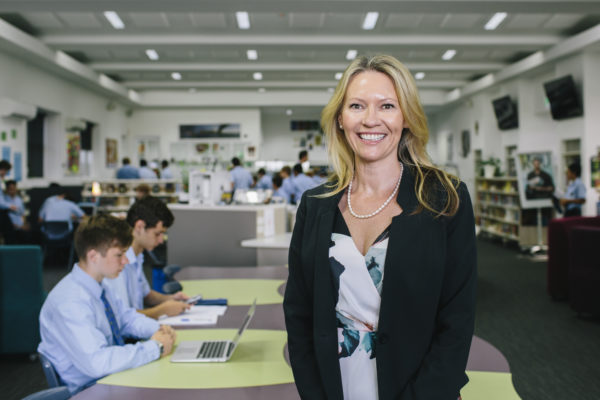
Deputy Principal - Teaching & Learning, Ms Elizabeth Watson
Transformative Teaching and Learning
Term 3 Professional Learning (PL) Day focused on enhancing student success through Collaborative Group Work, Constructive Feedback, and Formative Assessment.
Education is an ever-evolving process, and to ensure that teachers are equipped with the latest tools and pedagogies to foster student success, Waverley College continues to commit to providing quality PL experiences for our staff. These dedicated days allow us to come together, share our experiences, and learn from one another. One crucial aspect of such experiences is to explore evidence-based innovative teaching practices that have proven effective in enhancing student engagement and achievement. The day enabled us to enliven the principles of our T&L Framework.
Session 1: Collaborative Practice
This session was facilitated by the Collaborative Action Research team (Helen Barrie, Alice Curtis, Stephanie Falk, Oliver Knight, Nicholas Sposari, Gemma Stead, Margaux Walker and Elizabeth Watson). The team shared what they had learnt when exploring, designing and engaging in a variety of group work activities with their classes during Semester 1. The aim of the research project was to establish how to best implement collaborative practices in our school context to foster dynamic learning environments.
Collaborative group work has become a hallmark of progressive education. Gone are the days of passive learning, where students sit in silence, absorbing information without actively engaging with the material or their peers. Educators recognise the immense value of effective group work. When students work together in groups, they can share ideas, challenge one another’s perspectives, and develop essential teamwork and communication skills. Moreover, collaborative group work nurtures a sense of community within the classroom, encouraging students to support and learn from each other. By embracing this approach, educators not only empower students to become active participants in their education, but also prepare them for the collaborative demands of the modern workforce.
Session 2: The Power of Effective Feedback
This session was facilitated by Ms Mary Ryan, Mr Angus MacAuslan, Mr Barry Smith, Mr Ben Shorthouse and Mr Rob Tall. They highlighted that effective feedback plays a pivotal role in the learning journey of students.
Constructive feedback serves as a compass, guiding learners towards improvement and growth. During this session, staff delved into the art of giving effective feedback, emphasising the importance of being specific, timely, and encouraging. When students receive feedback that is tailored to their individual progress, they gain valuable insights into their strengths and areas for development. Additionally, constructive feedback instils a growth mindset, where students learn to perceive challenges as opportunities for improvement rather than obstacles to success. By consistently providing meaningful feedback, educators can empower students to take ownership of their learning, fostering a culture of continuous improvement within the classroom.
Session 3: Formative Assessment as Learning Checkpoints
The final session was delivered by Mr Nicholas Brophy, Mr Mark Neale, Ms Lynsey Porter, Mr Ben Shorthouse, Ms Jade Sparks, Mr Nicholas Sposari, Ms Charlotte Stephens and Ms Jenna Turnbull.
Formative assessment – an ongoing process of evaluating student understanding and progress – is critical in empowering students to take an active role in their learning journey. Learning checkpoints allow for regular feedback on student performance and enable individuals to track their progress, identify their strengths, and address their weaknesses, fostering a sense of autonomy and accountability in their academic pursuits. Hattie suggests that students should consistently ask themselves (1) Where am I going?, (2) How am I going?, and (3) Where to next?. He considers these to be the ‘Holy Trinity of Learning’ which guide learners towards a future of success and lifelong learning.



